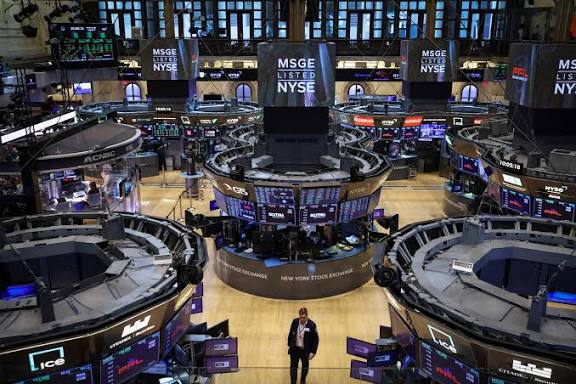A months-long calm on Wall Street came to an abrupt end on Friday after President Donald Trump threatened to sharply increase tariffs on Chinese imports, reigniting fears of a renewed trade war between the world’s two largest economies.
U.S. stocks tumbled across the board following the president’s social media post, in which he expressed frustration over China’s export restrictions on rare earth materials — vital components in electronics and aircraft manufacturing.
Trump said he is considering “a massive increase of tariffs” and questioned the need for a planned meeting with Chinese leader Xi Jinping.
The announcement sent shockwaves through financial markets. The S&P 500 slid 182.6 points to 6,552.51, while the Dow Jones Industrial Average fell 878.82 to 45,479.60.
The Nasdaq composite dropped 820.20 to 22,204.43. Nearly six out of seven stocks on the S&P 500 ended the day lower, with Big Tech names such as Apple and Nvidia leading declines.
The selloff followed months of strong gains that critics say pushed stock valuations to unsustainable levels.
Analysts have warned that prices have far outpaced corporate earnings, particularly in the artificial intelligence sector, drawing uneasy parallels to the dot-com bubble of the early 2000s.
Among individual stocks, Levi Strauss plunged 12.6% despite posting better-than-expected quarterly profits, as investors reassessed the company’s lofty share price after a 42% rise this year.
In commodities, oil prices fell sharply after a ceasefire between Israel and Hamas eased fears of supply disruptions. U.S. crude dropped 4.2% to $58.90 a barrel, while Brent crude declined 3.8% to $62.73.
Meanwhile, the yield on the 10-year Treasury slipped to 4.05% amid weak consumer sentiment data and expectations of further interest rate cuts by the Federal Reserve to shore up a slowing economy.



















